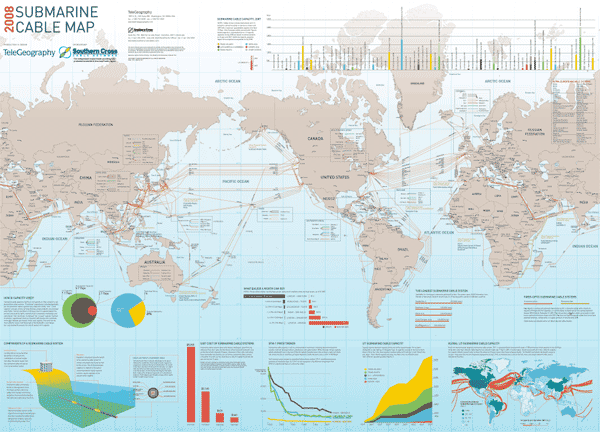Steve Gibson Explains Internet Congestion
There has been a lot of commotion about net neutrality and packet shaping in the news recently. All of the stories that I have read have been from the point of view of the common Internet user whose freedom of access has been threatened by the gatekeepers of the Internet, the service providers. On the recent episode of Security Now, Steve Gibson and Leo Laporte take an objective look at how the Internet clogs up and what the ISPs have to do to manage their network. Starting off at how the HTTP protocol was designed through how ISPs swap traffic at the backbone of the Internet (known as peering) to the future of fatter broadband pipes, Steve doesn’t miss a beat.
To be frank about it, the Internet is short on bandwidth. There is simply too much demand and not enough space to squeeze all of the data around the world fast enough. Everybody wants fast, snappy web pages to spring up as soon as they click a link. But services like Bittorrent tend to max out the network’s resources causing the other web traffic to grind to a halt until the bottleneck is gone.

Map of the under-sea cables connecting the continents to the Internet. If one should fail then the packets will be sent through an alternate route.
The Internet was designed for traffic to automatically re-route itself for the best available delivery route. But if the packets encounter holes, your connection will slow down the sending of packets in hopes that the strain on the route to the destination clears up. This is why your connection might seem to slow to a crawl around the time people are getting off of work and heading home to surf the web there.
The Internet was never designed with the scale that it is today in mind. ISP’s are simply trying to manage their networks for the sake of everybody’s experience. For the sake of the net, researchers are busy devising new protocols to make network traffic more efficient but it is a tough nut to crack with many variables to take into consideration. And then there is always the ethical and political issues. Internet congestion is one tough pill to swallow!
You can listen to the 1:21:12 mp3 for Security Now Episode #139 and follow along with the transcript.

